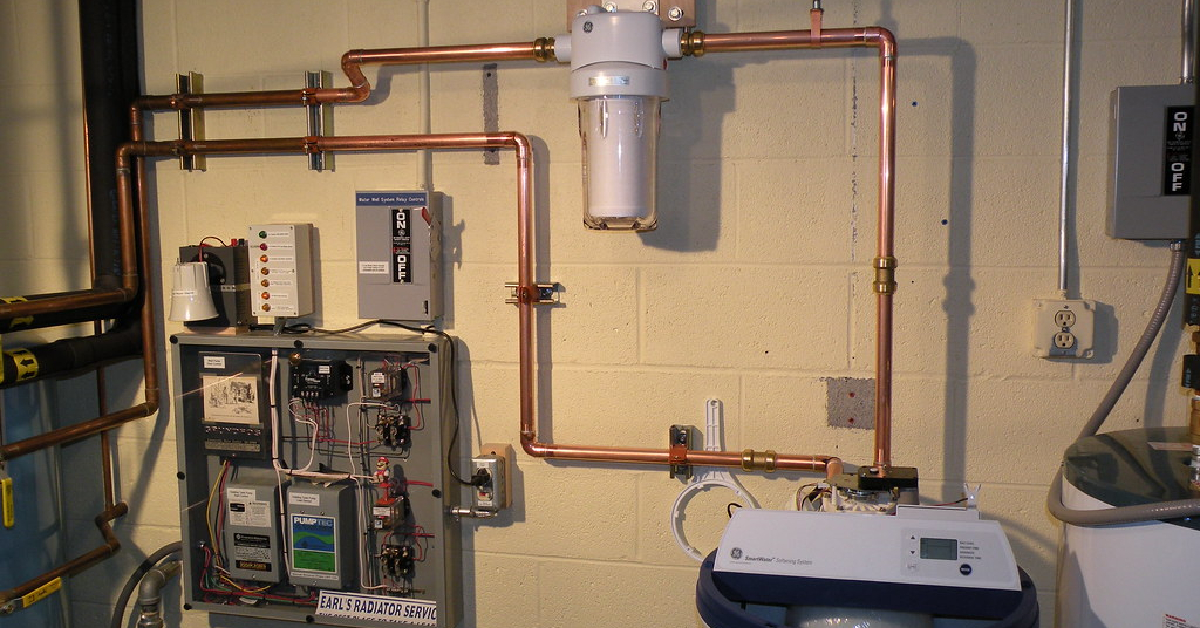Water heaters are a staple in most homes; like any other appliance, they can suffer from wear and tear. Corrosion is one of the most common problems with water heaters, and if left untreated, it can lead to leaks and even complete pipe failure. In this blog post, we’ll show you how to remove corrosion from water heater pipes using a few simple tools and methods. Let’s get started!
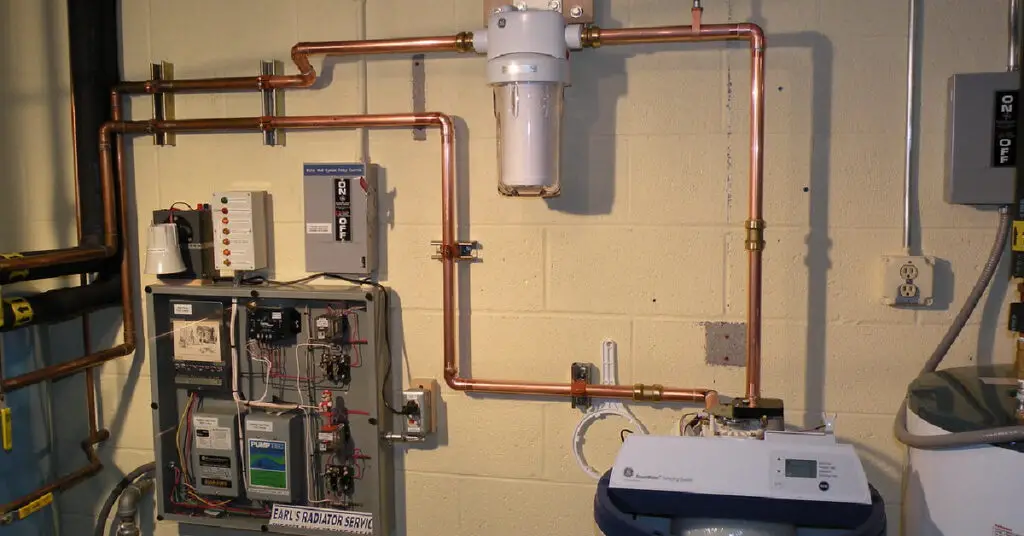
What Is Corrosion and How Does It Form on Water Heater Pipes?
Corrosion can be defined as the deterioration of a material, usually a metal, resulting from a reaction with its environment. In the case of water heaters, the most common type of corrosion is galvanic corrosion, which occurs when two dissimilar metals are in contact with each other in an electrolyte (in this case, water). When this happens, an electrochemical reaction causes one of the metals to corrode.
Galvanic corrosion is accelerated by oxygen and/or chloride ions in the water, which is why it is more likely to occur in water heaters than in cold ones. Another type of corrosion that can affect water heaters is caustic embrittlement caused by the build-up of calcium carbonate on the metal surfaces.
This can happen if the water heater is not properly maintained and the anode rod (which helps prevent corrosion) is not regularly replaced. If left unchecked, corrosion can cause serious damage to water heater pipes and other components, eventually leading to leaks or even complete failure.
Why Should You Remove Corrosion From Water Heater Pipes?
Corrosion in water heater pipes is a common problem that can lead to serious consequences. The first and most obvious reason to remove corrosion from water heater pipes is to prevent leaks. Once corrosion starts, it will continue to eat away at the metal, eventually leading to holes and leaks. In addition to causing water damage, leaks can lead to dangerous gas leaks.
Even small leaks can allow enough gas to escape, creating an explosion hazard. Furthermore, corrosion can also reduce the efficiency of your water heater, as it takes longer for heat to transfer through corroded metal. As a result, removing corrosion from water heater pipes is essential for maintaining the safety and efficiency of your home’s plumbing system.
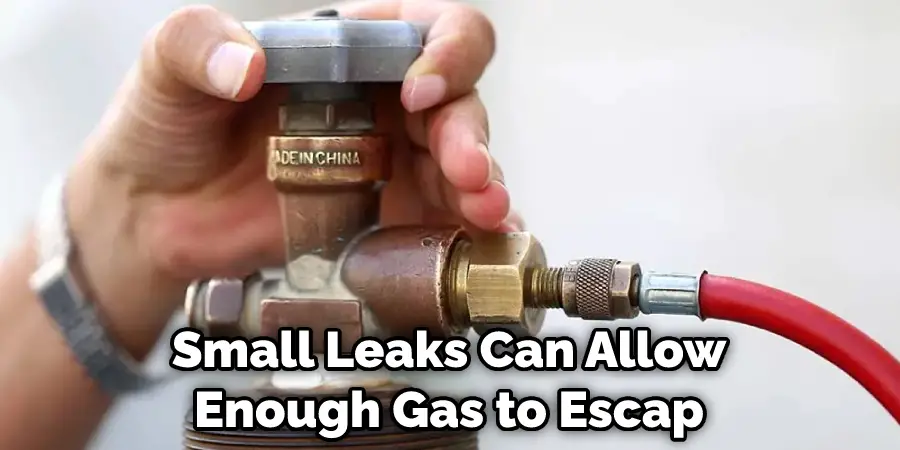
7 Ways to Follow on How to Remove Corrosion From Water Heater Pipes
If your water heater shows signs of corrosion, it’s important to take action and remove it as soon as possible. Corrosion can lead to leaks and even complete pipe failure, so addressing the issue as soon as you notice it is essential. Here are a few steps you can take to remove corrosion from your water heater pipes:
1. Flush Your Water Heater
This is the first and most important step in removing corrosion. Flushing your water heater will remove any sediment or debris that has built up over time, and it will also help to clear out any corrosive materials that may be present. You can flush your water heater by attaching a hose to the drain valve and running it until the water runs clear.
2. Inspect Your Pipes
Once you’ve flushed your water heater, it’s time to take a look at your pipes. First, check for any signs of corrosion, especially around fittings and valves. If you see any corrosion, it’s important to remove it as soon as possible to prevent further damage.
There are a few ways to remove corrosion from your pipes. You can use a wire brush to scrub away the rust, or you can use a chemical cleaner specifically designed to remove corrosion. Be sure to follow the instructions on the cleaner carefully, and always wear gloves and eye protection when using any kind of chemicals.
You may need to replace the affected pipe if the corrosion is severe. This is something you should always consult a professional plumber for. They will be able to properly assess the situation and make sure the replacement is done correctly.
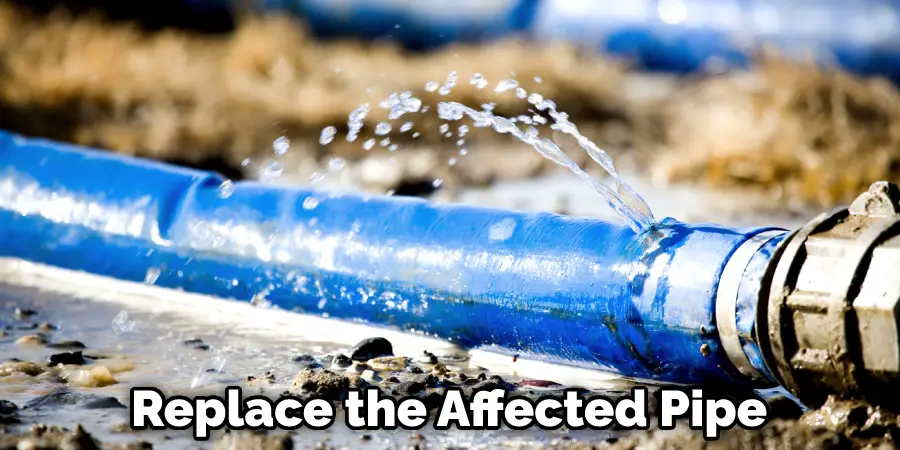
3. Apply a Corrosion-Resistant Coating
After removing the corrosion, it’s important to take measures to prevent it from returning. One way to do this is to apply a corrosion-resistant coating to the pipes. This will create a barrier between the metal and the water, preventing corrosion from happening again. You can find corrosion-resistant coatings at most hardware stores.
4. Use a Water Softener
If you live in an area with hard water, that could be the reason why your water heater pipes are corroding. Hard water contains high levels of minerals, like calcium and magnesium, which can cause corrosion. A water softener will remove these minerals from the water, preventing corrosion. You can buy a water softener at most home improvement stores.
5. Check the pH Level of the Water
The pH level of water is a measure of how acidic or basic it is. Water with a low pH level is more acidic and can cause corrosion. You can buy test strips to check the pH level of your water at most hardware stores.
If the pH level of your water is below 7, it is considered acidic, and you should take steps to improve it. There are a few ways to do this. You can add a water filter to remove impurities from the water or a chemical neutralizer to raise the pH level. Always consult a professional before adding any chemicals to your water.
6. Add an Anode Rod
Anode rods are made of metal and attract corrosion. When added to a water heater, they help prevent the tank from corroding. You can buy an anode rod at most hardware stores.
These are just a few ways to remove corrosion from your water heater pipes. If you have any concerns, be sure to consult a professional plumber. They will be able to properly assess the situation and make sure the repair is done correctly.

7. Call a Professional
If you’re not comfortable performing any of the above steps or if they don’t seem to be working, it’s time to call in a professional. A water heater corrosion removal specialist will have the necessary tools and experience to get the job done correctly. They can also advise you on how to prevent corrosion in the future.
That’s it! You’ve now learned how to remove corrosion from water heater pipes. Corrosion on your water heater pipes can lead to serious problems down the line. But, with a little elbow grease (and maybe some professional help), you can get rid of it for good. Follow the steps above, and your water heater will be as good as new.
What Causes Corrosion on Water Heater Pipes and How to Prevent It
Corrosion on water heater pipes is a common problem that can cause serious damage to your home. Several factors can contribute to corrosion, including the type of water heater, the type of pipe, and the age of the pipe. In most cases, corrosion is caused by a reaction between the metal of the pipe and the water.
This reaction can be accelerated by factors such as high water temperature, high water pressure, or the presence of corrosive chemicals in the water. The best way to prevent corrosion is to have your pipes inspected regularly and replace them if they show signs of wear.
You should also be sure to use only potable water in your water heater and to flush it out regularly to remove any build-up of minerals or other contaminants.
How to Clean Your Water Heater Tank and Pipes
Most people don’t give much thought to their water heater until they don’t have hot water. But, to avoid a cold shower, it’s important to regularly clean your water heater tank and pipes. While it may seem like a daunting task, with a little elbow grease, you can easily keep your water heater in top condition. Start by draining the tank and flushing out the sediment over time.
Next, use a stiff brush to scrub the inside of the tank, paying special attention to the anode rod. Finally, flush the pipes with clean water to remove any lingering debris. By taking these simple steps, you can ensure that your water heater will provide years of trouble-free service. Keep reading for more information about how to remove corrosion from water heater pipes.
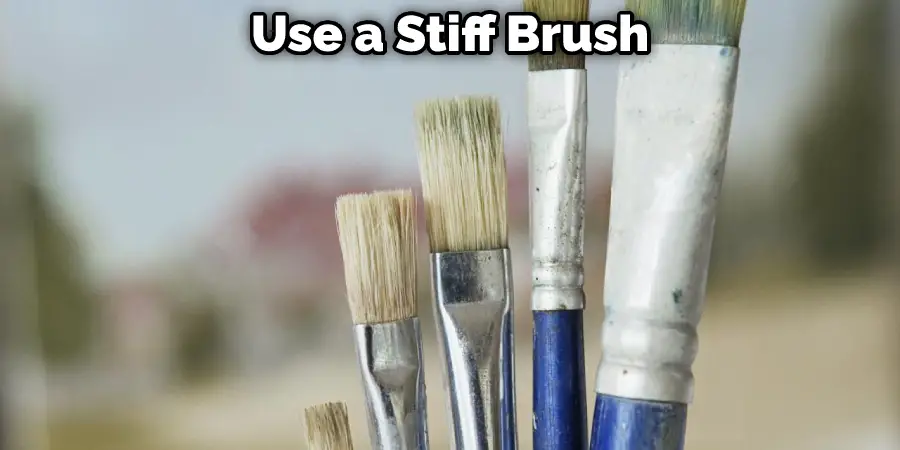
The Dangers of Corrosion and How It Can Damage Your Water Heater
Corrosion is a big problem when it comes to water heaters. When water contains dissolved minerals, it becomes more acidic. This acidic water can break down the metal lining of your water heater, leading to rust and leaks. In addition, corrosion can damage the heating elements, causing them to fail prematurely. If you have a gas water heater, corrosion can create holes in the combustion chamber, leading to deadly carbon monoxide leaks.
As you can see, corrosion is a serious threat to the safety and longevity of your water heater. That’s why it’s important to have your water heater regularly inspected and serviced by a qualified professional. By catching corrosion early, you can avoid costly repairs and keep your family safe from harm.
Conclusion
If you have a water heater, it’s important to prevent corrosion. By following the tips in this blog post, you can remove corrosion from your water heater pipes and improve your water quality. Thanks for reading our post about how to remove corrosion from water heater pipes.
Rick is a handyman who grew up helping his dad with his business. He learned a lot from him about how to fix things, and also about how to work hard and take care of business. These days, Rick is still into fixing things- only now, he’s doing it for a living.
Rick is always looking for new ways to help people grow and develop. That’s why he started contributing to this blog: to share all his experience and knowledge so that he can help people who are interested in DIY repair.

